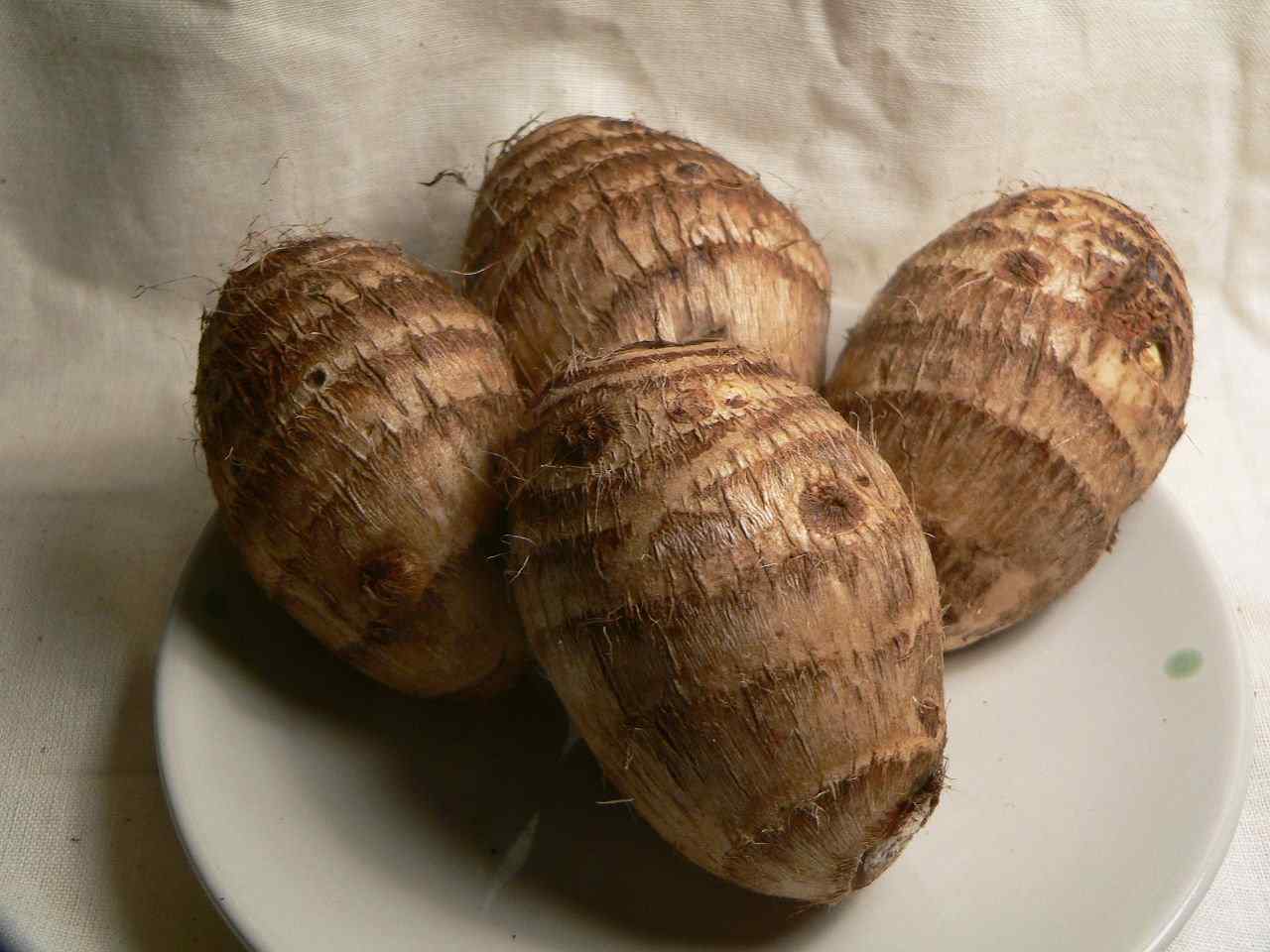Cocoyam or Taro Root is a perennial crop usually growing in tropical regions of the world. Its botanical name is Colocasia esculenta.
It is a tuber crop, having high starch content. Cocoyam has three major parts:
- Corm
- Stem
- Leaves
People grow it for eating purposes or as a decorative plant.
Cocoyam also offers numerous medicinal uses, which we will discuss in this article.
Nutrition Facts:
Cocoyam is an outstanding source of fiber, vitamins, and minerals.
100 grams of cooked cocoyam provides the following nutrients (1).
- Calories: 142 kcal
- Carbohydrate: 34.6 grams
- Dietary Fiber: 5.1 grams
- Fat: 0.11 grams
- Protein: 0.52 grams
- Calcium: 18 mg – 2% of the daily value (DV)
- Iron: 0.72 mg – 6% of the DV
- Potassium: 484 mg – 10% of the DV
- Vitamin B-6: 0.331 mg – 25% of the DV
- Vitamin E: 2.93 mg – 20% of the DV
- Folate: 19 μg – 5% of the DV
- Vitamin C: 5 mg – 5% of the DV
- Vitamin D: 1.2 μg – 8% of the DV
Health Benefits Of Cocoyam:
Cocoyam has a tremendous number of health benefits. Here are some of the most obvious perks of consuming them.
1. Good For Diabetes
Cocoyam has a moderate glycemic index (GI) of 63 (2). Also, it is extremely high in dietary fiber.
Hence, cocoyam will not raise your blood glucose levels rapidly. Additionally, studies on rats indicate that cocoyam helps reduce blood sugar levels (3).
Therefore, cocoyam can be added to a diabetic diet. However, since cocoyam has a moderate GI, it is important to take them in moderation.
2. Helps Prevent Kidney damage
High blood sugar levels may damage the parts of the kidney, which is called diabetic nephropathy.
Research has found that cocoyam could be helpful in the management of diabetic nephropathy (4).
3. Good For Heart
Cocoyam is good for weight loss due to its high fiber content and a low amount of calories.
A study has found that the consumption of high-fiber foods is linked with a reduced risk of heart diseases (5).
Plus, another study says that cocoyam helps reduce blood cholesterol levels and body weight (6).
Hence, eating cocoyam may help you maintain a healthy heart.
4. Helps Reduce Blood Pressure
Cocoyam contains a significant amount of potassium, which may help reduce blood pressure.
Additionally, research says that the extract of cocoyam leaves possess antihypertensive effects (7).
Hence, cocoyam may help regulate your blood pressure.
5. Rich In Vitamins
Cocoyam is safe for people to eat during pregnancy. And, NSW food authority recommends taro (cocoyam) in a pregnancy diet (8).
Cocoyam is rich in B vitamins, vitamin D, and folate. These vitamins are essential during pregnancy (9).
Also, cocoyam has a significant amount of zinc and vitamin C. Both may help improve your immunity.
6. Helps Prevent Cancer
Cocoyam possesses anti-cancer activities (10). It is also a rich source of antioxidants, such as flavonoids (11).
Research says that the flavonoid-rich diet protects against cancer and heart diseases (12).
Therefore, eating cocoyam may reduce the risk of cancer.
Conclusion:
Cocoyam has a lot of vitamins and minerals. It helps prevent many diseases, including diabetes, cancer, and heart diseases. It also improves your digestive health.
A person who consumes cocoyam daily gets relief from the problem of constipation and diarrhea.
Therefore, adding cocoyam to your regular diet will keep you fit and healthy.
